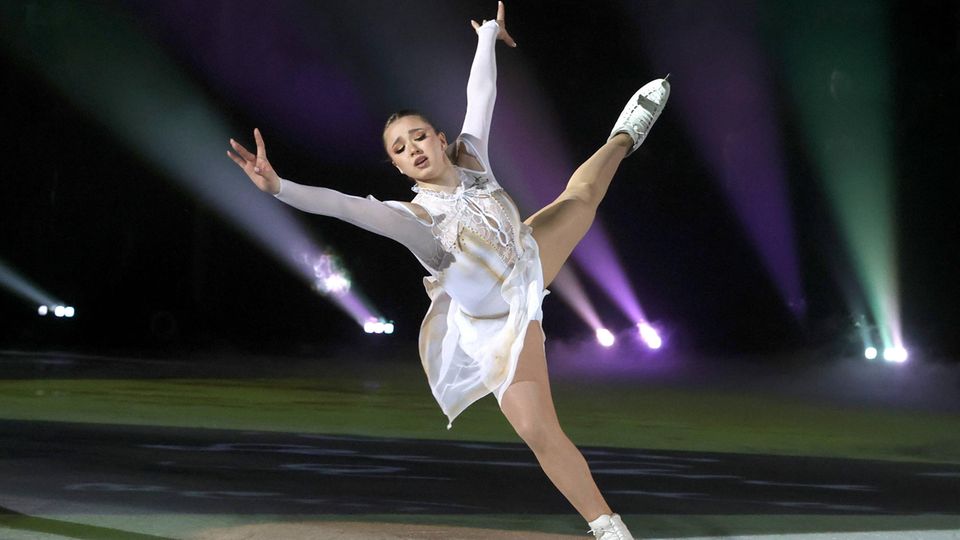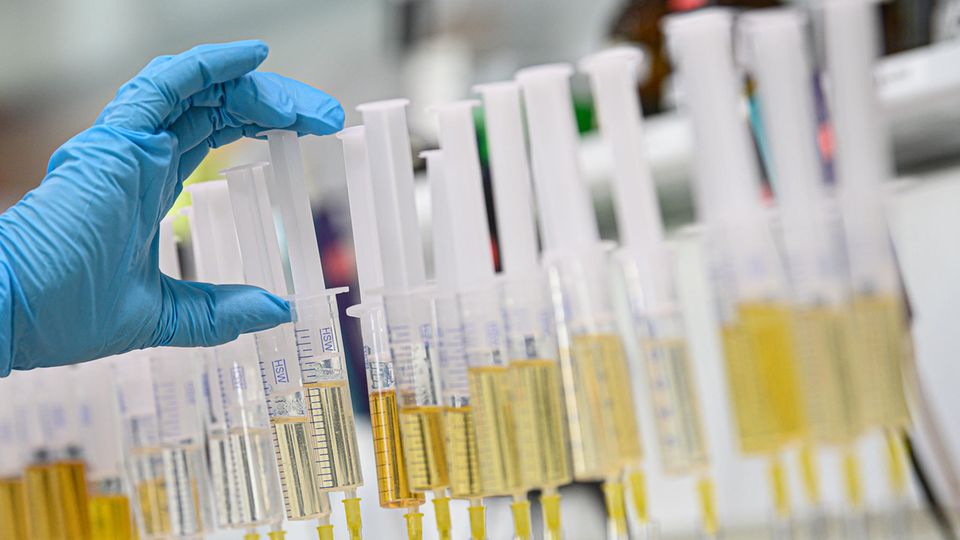Gold medalist
23 top Chinese swimmers suspected of doping – but investigators looked the other way
Chinese middle-distance swimmer Zhang Yufei is one of 23 athletes from China who had a positive doping test in 2021. The following year she became a double Olympic champion
© David Balogh/Getty Images
A few months before the start of the Olympic Games, a new doping scandal is emerging. In 2021, several Chinese athletes were said to have been convicted of doping, but the World Anti-Doping Agency relied on a government report. But this raises questions.
The swimming competitions at the Summer Olympics in Paris will start in around three months, but now a storm is brewing. The main players: the World Anti-Doping Agency (Wada) and China’s Ministry of Public Security.
As the “New York Times” and “ARD” report, several top swimmers from China are said to be involved in a doping scandal. The NYT and ARD rely on a report from the Chinese anti-doping agency Chinada, which was leaked to them last year. Accordingly, a total of 23 swimmers are said to have tested positive at a national competition in China at the beginning of 2021. The banned heart drug trimetazidine is said to have been found at the competition in Shijiazhuang, the same drug that was also found in Russian ice skating talent Kamila Valiyeva at the 2022 Winter Games. While Valiyeva was punished with a four-year ban in January this year, nothing happened to the Chinese athletes.
Explosive: Several of the affected athletes won medals at the 2021 Summer Games in Tokyo, including double Olympic champion Zhang Yufei and Yang Junxuan, who won two medals in the relay. Also affected is Qin Haiyang, the 2023 World Swimmer of the Year, who not only set a world record in the 200 meter breaststroke at the World Championships in Fukuoka, but was also the first male swimmer to win all three breaststroke events. Qin and Zhang are considered superstars in China and, according to ARD, also have political ambitions as members of the National People’s Congress.
Doping in China: amazing parallels to the Valiyeva case
According to the report submitted by China, the positive samples were caused by contamination. Food was cooked for all affected athletes in a hotel kitchen in Shijiazhuang. The report shows that more than two months later, investigators inspected the kitchen and found traces of trimetazidine in the extractor hood, on spice containers and in the drain. The report leaves it unclear how the heart medication could have gotten into the kitchen. However, the report concludes, the doping drug entered the athletes’ bodies without their knowledge. Figure skater Valiyeva argued similarly, also citing contaminated food in her justification.
The Chinese Anti-Doping Agency stated that there had been “no anti-doping violations” and therefore there was no need for action. WADA accepted this version without hesitation. A spokesman told ARD that she saw no basis to “challenge the explanations of contamination.” The World Swimming Federation only said that the incidents had been examined “carefully and professionally”.
Although the violation was entered into Wada’s reporting system, because no violation of the rules was reported and an internal investigation was initiated, the Chinese swimming association avoided a temporary ban for its athletes. Especially since the entry is said to have only been made in the system two and a half months after the offense. The investigations themselves also raise questions. According to ARD and the New York Times, Chinada is named as the author of the report, but the investigations were not led by the anti-doping agency, but by the Ministry of Public Security, an extended arm of the Chinese power apparatus.
Experts contradict the investigation report
However, experts contradict the report. Forensic toxicologist and pharmacist Fritz Sörgel explained to ARD that the concentrations found by the Chinese laboratory could only have arisen if “the doping agent had been administered weeks before.” Five experts told the New York Times that a low detected level of trimetazidine did not indicate, as stated in the report, that the athletes were unintentionally doped. There is also the possibility that they are at the end of a doping cycle. Travis T. Tygart, head of the American Anti-Doping Agency, spoke to the New York Times of a “stab in the back of all clean athletes” and the case “smacks of a cover-up at the highest levels of world anti-doping -Agency”. Tygart, who once convicted Lance Armstrong of doping, has been accusing China of systematic doping in the swimming association for years.
David Howman, former director at WADA, also cannot understand why the anti-doping agency did not initiate its own investigation. The report from China was “shocking,” Howmann told the New York Times. Wada should have noticed that there was a massive increase in doping cases involving trimetazidine in 2021. According to the US newspaper, there were only three cases in 2020, but 37 were registered the following year. Howman complains that important processes that should have been followed after the positive tests were discovered were apparently not carried out. “It shows me that perhaps there was some kind of program to ‘prepare’ the swimmers for the Tokyo Olympics.”
Contrary to the claim made in the investigation report according to the New York Times that trimetazidine is an unknown doping agent in swimming, there has already been another known case – also from China. Sun Yang, the first Chinese Olympic swimming champion in 2012, was banned for three months in 2014 for using the drug. It was the starting signal for China’s success story in the swimming pool. At the World Championships in Fukoka 2023, China won 40 medals, just four fewer than the USA swimming nation. With a total of 20 gold medals, China clearly trailed the USA (seven) and Australia (15).
Yang, a three-time gold medalist and eleven-time world champion, was no longer there at this point. He made headlines in 2018 when he and a security guard destroyed his blood sample shortly after a doping test. Although the World Swimming Federation acquitted Yang at the beginning of 2019, Wada lodged a complaint with the International Court of Arbitration for Sport, which retroactively banned the swimmer for four years and three months in June 2021. This expires in June 2024, a month before swimmers take to the pool at the Paris Games.
Sources: ARD, New York Times, New York Times (2)dpa



